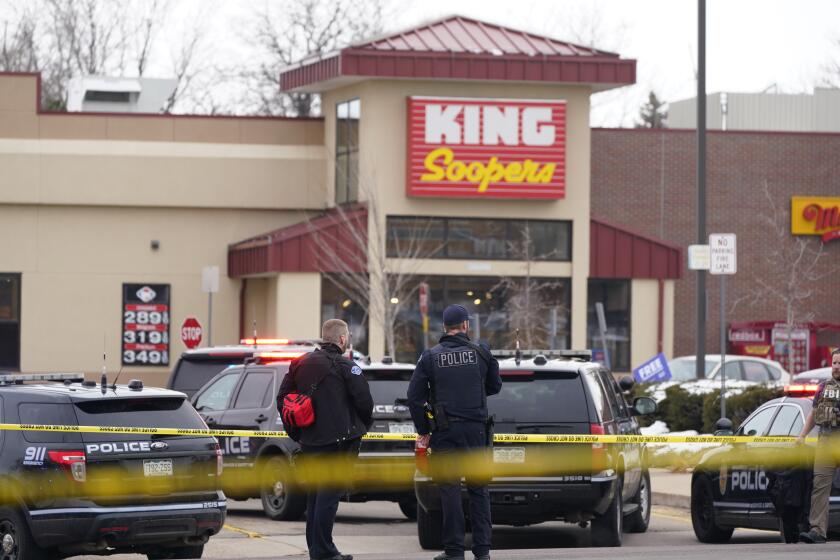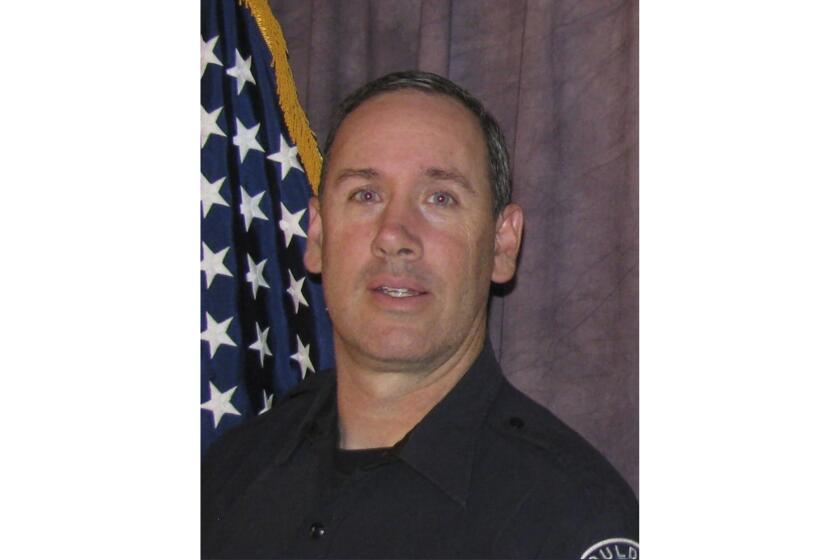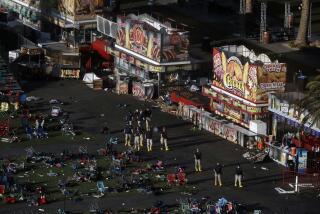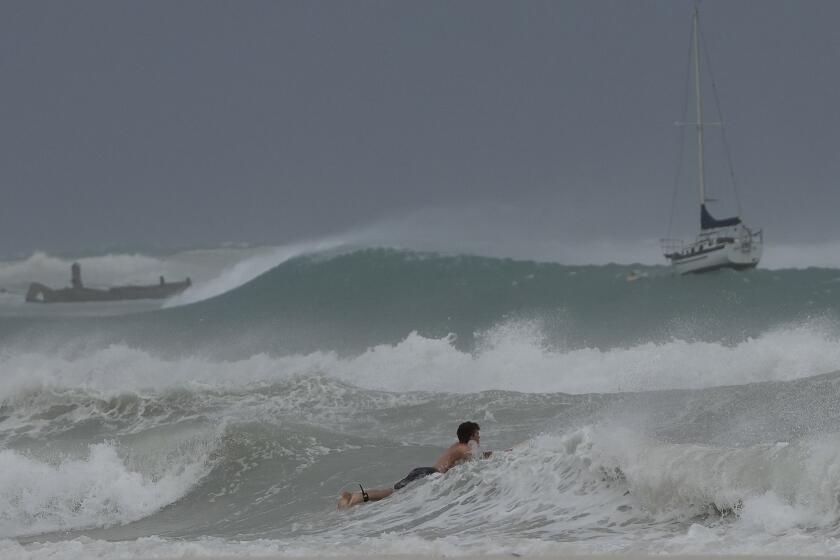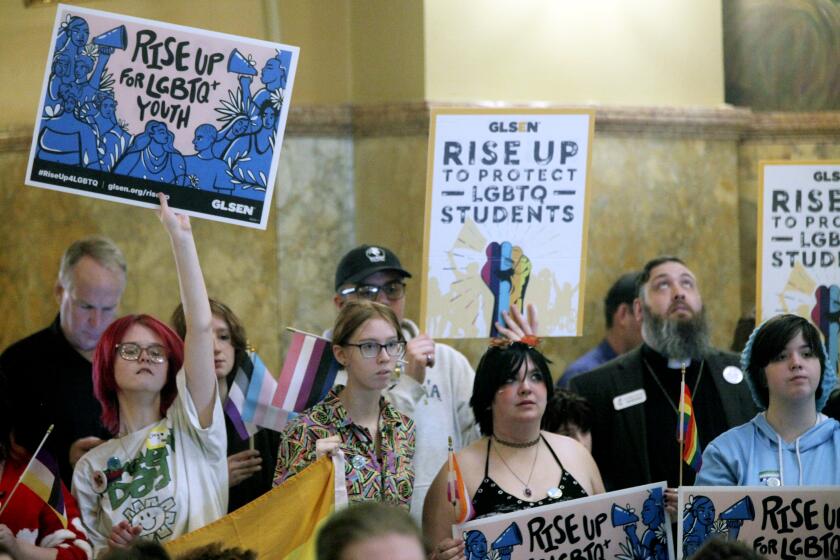Judge blocked Boulder’s assault-weapons ban after NRA-backed lawsuit
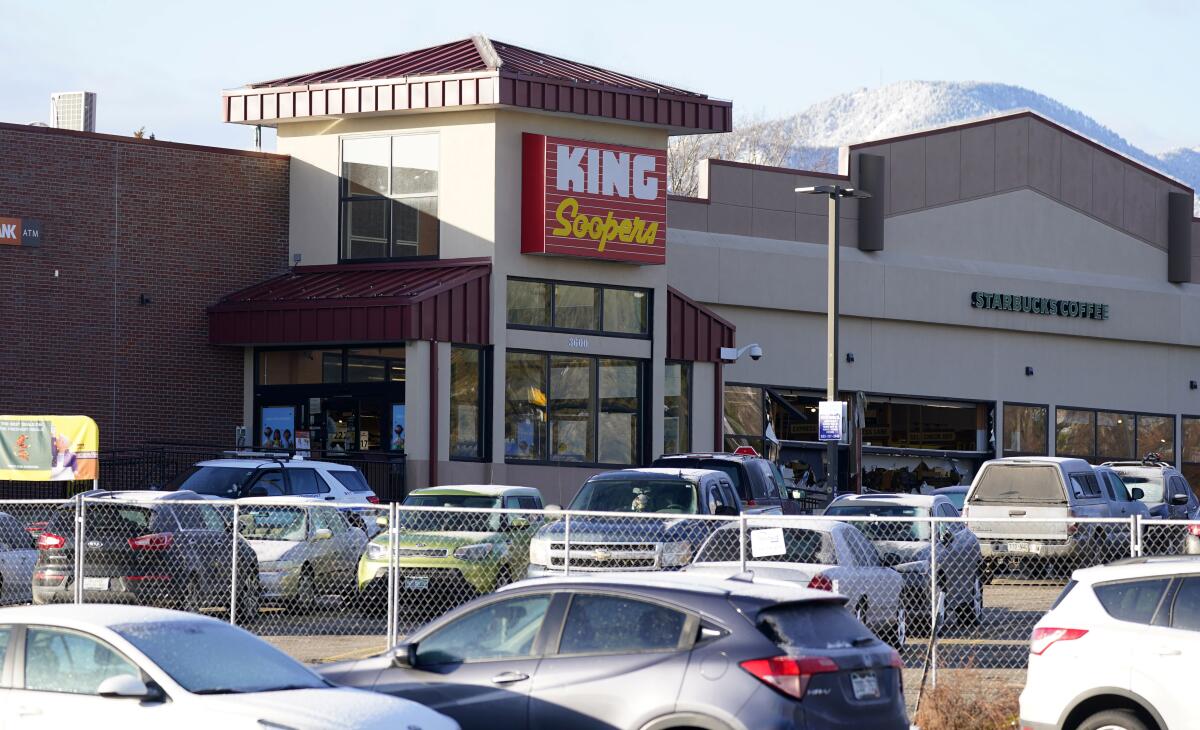
Nearly three years before a gunman walked into a crowded supermarket in the foothills of the Rocky Mountains with an AR-15 style weapon and killed 10 people, the city of Boulder, Colo., voted to ban assault weapons.
Leaders had hoped to prevent the kind of mass shooting that’s struck the state more than once over the last two decades. But just 10 days before Monday’s rampage, the measure was blocked in court after a lawsuit backed by the National Rifle Assn. The ruling came under a Colorado law that bars local officials from making their own gun laws.
Similar preemption laws have become the norm in more than 40 U.S. states since the 1980s. Just a handful of states still allow local officials to make their own rules on guns, according to the group Everytown for Gun Safety.
Supporters say such measures allow states to be consistent in firearm laws so that law-abiding gun owners aren’t facing a patchwork of different rules in different parts of the state. The NRA has called the Boulder ordinance counterproductive, and argued that it was a clear violation of Colorado’s preemption law passed in 2003.
Critics say those measures serve to intimidate officials considering firearm restrictions. Boulder is known for its liberal politics, but when the council was discussing the ordinance, opponents who appeared to be from outside the area gathered to oppose the plan in a scene that became increasingly tense, said Rachel Friend, a City Council member.
“The reason we had the assault-weapons ban was to prevent exactly the sort of tragedy that happened yesterday,” said Friend, who worked to support the idea before she was elected.
A 21-year-old man is in custody on suspicion of fatally shooting 10 people at a Boulder, Colo., grocery store.
The ordinance was challenged in court shortly after it passed. Robert L. Chambers, a Boulder resident who was listed as the lead plaintiff, said he was recruited to be part of the NRA-backed gun rights case. A hunter who owns numerous firearms, he declined to say if he had an AR-15. But he said he had no regrets about helping overturn the local ban on semiautomatic carbines like the one used by the grocery store gunman.
“The only reason I was in that was to make the city of Boulder comply with state law,” Chambers said. “I would still do the same thing I did. … Do you think [the shooter] cares that the city of Boulder had an assault-rifles ban? Let’s get realistic here.”
The city hasn’t yet decided whether to appeal the ruling.
While there are signs that the influence of the NRA — which has filed for bankruptcy — is declining nationally, pro-gun-rights forces remain strong in many states. The 2nd Amendment has long been important in Colorado, where two state lawmakers lost their seats after backing gun restrictions in 2013.
The 10 people who were gunned down included a magazine photographer, a Medicare agent with a passion for theater and others going about their days at a busy shopping plaza.
As the state increasingly trends Democratic, though, there’s been more momentum behind gun-safety measures, and a similar lawmaker-recall effort failed in 2019 after the passage of a so-called red-flag law, which allows a judge to temporarily remove guns from people who are considered a danger to themselves or others.
The Colorado State Shooting Assn. said any renewed debate on gun laws after Monday’s slayings should come after allowing time for grief and healing, according to a statement, which called the shooting a “horrible event.”
The Boulder shooting was the seventh mass killing in the U.S. this year and came less than a week after the Atlanta slayings that left eight people dead at three massage businesses, according to a database compiled by the Associated Press, USA Today and Northeastern University. The country saw fewer mass killings during the COVID-19 pandemic in 2020, but not less gun violence. Homicides are up in cities across the country.
President Biden said Tuesday that “we have to act” to pass reform legislation, and Democrats said they are pushing a vote on expanded background checks, but the measure faces a difficult road in the Senate. Congress has not passed any major gun-control laws since the mid-1990s, leaving most significant gun legislation in states’ hands.
The 21-year-old gunman who opened fire Monday was from another city outside Denver, police said. He bought the Ruger 556 pistol six days before the shooting, according to court documents, but it wasn’t immediately clear where he got it, or if the purchase was legal. His motive is still under investigation, but police say his family believed he was suffering some type of mental illness.
More to Read
Start your day right
Sign up for Essential California for news, features and recommendations from the L.A. Times and beyond in your inbox six days a week.
You may occasionally receive promotional content from the Los Angeles Times.
